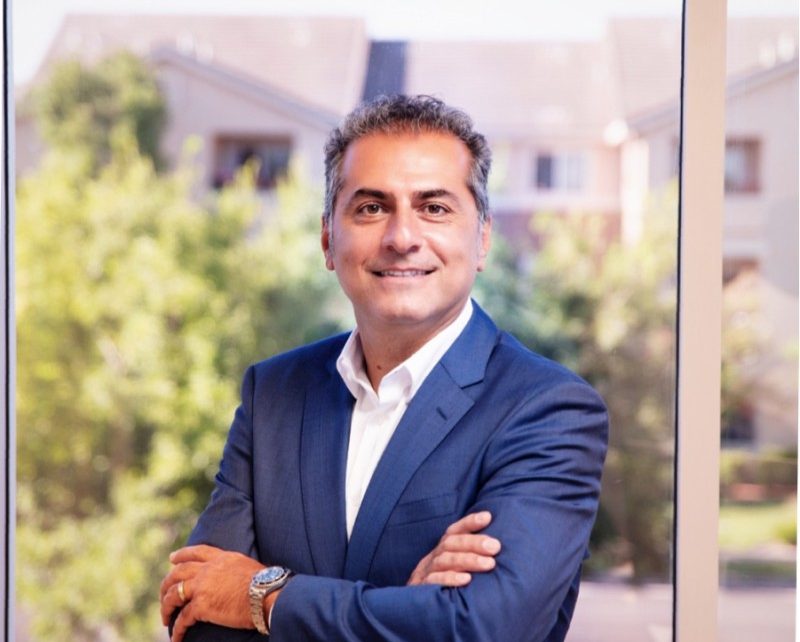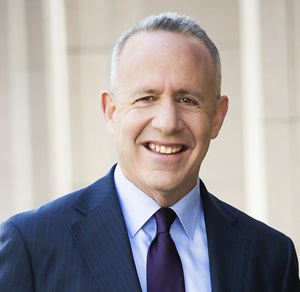
Sacramento City Councilman San Loloee. (Photo: SeanLoloee.org)
Sacramento Councilman Talks Turkey and Common Sense in Globe Interview
Elect a business owner and get an effective way of addressing local issues
By Katy Grimes, October 6, 2021 2:14 am
Sean Loloee was elected to the Sacramento City Council December 2020. Nearly one year in, the businessman is challenging the status quo and ceaseless government-group-think that is a decades-long problem in the Capitol city.
Loloee is an entrepreneur who owns and runs Viva Supermarkets in North Sacramento, Del Paso Heights, and Folsom.
Loloee was born in Iran. He opened his first grocery stores in Southern California in the 1990s, and then moved north, taking over an old abandoned market in a rough part of Oakland. In Sacramento, Loloee started the Viva Supermarket chain of stores in 2009.
The Globe met with Loloee and discussed the issues afflicting the City of Sacramento – most notably he said his district and one other within the city are the most overrun with homeless, and also have the highest cultural disparities. And Loloee said his district is being targeted for the most marijuana dispensaries – an issue not unique to Sacramento, as marijuana dispensaries targeting low income neighborhoods across the country is well documented, despite what drugs do in the low-income minority communities.
Loloee is open, frank and honest discussing issues that make most elected officials wince. Describing his district as “low-income, low information, black and brown,” he has rebuffed loading up his district with the bulk of the marijuana dispensaries. “In the name of ‘equity,’ we’re going to normalize marijuana for black and brown kids,” Loloee ironically said. “It’s all about making money, but they don’t see themselves as capitalists,” he said of the minorities being encouraged and coached by the city in the Cannabis Opportunity Reinvestment and Equity (CORE) program, to go in to the marijuana business.
“The CORE Program is a program created to assist individuals and communities who are facing barriers to starting cannabis businesses due to the historical disparate enforcement of cannabis crimes,” the City website says. Ironically, most small cannabis dispensary operators require investors who tend to own the majority shares.
Loloee said he asked the City Council to consider a moratorium on cannabis dispensaries in his district, but because any moratorium approval requires at least 8 council votes, he was told “no.”
Loloee is equally concerned with the affordable housing issue. He acknowledges that there is a shortage of affordable homes and apartments in the region, but is profoundly concerned with what the city is spending. “Now it is $600,000 per unit,” Loloee said. “One hundred units at $600,000 per unit is $60 million. And the developer gets 10%.”
The business man in Loloee grinds his teeth at this spending. “They make it sound like such a good thing,” he said. Loloee said he proposed to the council offering developers 1.5% for each project, curious to see who would still be interested in the projects.
The other issue he noted is how in his district apartments are going up next door to gas stations. “Communities like this for years have been discriminated against,” Loloee said. “Where else do you see such incompatible land use – only in low income communities.” He gave another example of incompatible land use in his district with marijuana cultivation warehouses and marijuana dispensaries across the street from residential homes where children live and play in the front yards.
Loloee discussed the city’s push for total electrification of all new construction, pushing out natural gas appliances, fireplaces, heating units, water heaters, and other gas appliances, noting that this will only drive up costs.
The Sacramento Municipal Utilities District (SMUD) is a major factor locally behind the all-electrification push. “Going all-electric at home, at work and on the road is better for your budget, your safety and our environment,” SMUD says on its website. “All-electric living improves public health, reduces air pollution and assists our local cities and towns in reaching their climate goals.”
However, the move to all-electric homes started with AB 32, the Global Warming Solutions Act of 2006, and the 2011 Renewables Portfolio Standard which requires 33% renewable energy in all electricity provided in California, passed by the California Legislature. California’s cap-and-trade program from AB 32 places a limit on greenhouse gas emissions from the businesses and entities “responsible for approximately 80 percent of the state’s greenhouse gas emissions,” which is how the all-electricity scheme was hatched.
“Electrifying Sacramento on all new buildings sounds like you care and want to do something about climate change, but in the end it won’t put a dent in it,” Loloee said. He noted that one of his colleagues on the council said every house in Sacramento should be required to be retrofit to all-electricity. Loloee said he’s seen estimate costs to do this between $8,000 to $17,000 per home, and thinks that’s low. “What will this accomplish?” he asked. “Saying ‘I want to save the environment’ makes people look like they care, but what will electrifying all homes do?”
We discussed how nearly impossible this will be without using all forms of available energy – natural gas, wind, solar, hydroelectric, nuclear, coal – especially when California can’t even provide consistent electricity during the summer months without power outages and rolling blackouts.
As for the epidemic of homeless in Sacramento and District 2, Loloee says his district is “home” to the most RVs and people living/sleeping in their cars. “Los Angeles and San Francisco have been destroyed by the homeless and no policies,” Loloee said.
Loloee spends Sundays meeting and talking with the homeless on Roseville Road in his district. He said when he first asks them where they are from, the answer is always “Sacramento.” By his third visit, they admit they are not only from out-of-town, but usually from another state, here for Sacramento’s tolerant policies.
“The children are my Kryptonite,” Loloee said. He worries about the conditions the homeless children are living in, if they are attending school and getting regular meals and health care.
This discussion morphed into the spending on homeless by the city, county and state. “The proposal of $14 billion in homeless spending – how many can we really help with that?” Loloee asked. “Or the $100 million the Mayor proposes… how many homeless individuals will that help? What is the number?”
“And is $14 billion really the number? Or is it $30 billion… or $5 billion?” Loloee asked. “Where is the study which shows why that person became homeless? Progressives say it’s because of the lack of housing. But these people weren’t homeless 5 to 10 years ago. It’s bipolar and drug addiction.”
Loloee said it is likely that the money will go towards affordable housing rather than to services to help identify the specific issues causing their homelessness, and then to treatment. We discussed the process that needs to take place, with the end goal of getting them off the street, but only once they’ve been diagnosed and treated. “But what city has rehab facilities to address this?” Loloee asked.
The other issue is low-barrier shelters – “They don’t work,” Loloee said. “We just move your camp from there to here,” he said. The Globe asked why the city does not support high-barrier shelters, requiring accountability of the homeless. “Progressives say ‘they have rights,'” he said. “The pushback is you need to ask that addict if he wants to go into rehab… but they always say ‘no.’
“But their blood is on your hands because they will overdose and die.”
“The City of Sacramento is big social services,” Loloee said. “I didn’t run to provide social services. That’s what the County does. We need the elected officials at the County to be much more involved than they are… without the County at the table, with their suggestions and ideas… this is not the City’s work. We don’t have the policies to deal with this.”
“If I move 300 RVs to a safe zone, what policy says 300 more don’t move in? We don’t have the policies,” he added.
Sean Loloee is a Democrat.
- Energy Company Warns CARB on ‘The Stark Reality’ Driving In-State Refining Capacity to Zero of CA’s Remaining 7 Refineries - February 28, 2026
- CAL DOGE Investigation: $1 BILLION California Solar Program Instead Funded Democrat Voter Registration & Activism Efforts - February 27, 2026
- Could President Trump End the Income Tax? - February 26, 2026





Well, what do you know —- a reasonable Democrat. Good news.
Wow, someone who understands the issues facing our city. Kudos to CM Loloee.
Perhaps a follow up story, investigation re the sac bee article on his labor law issues.
Looks a bit shady.